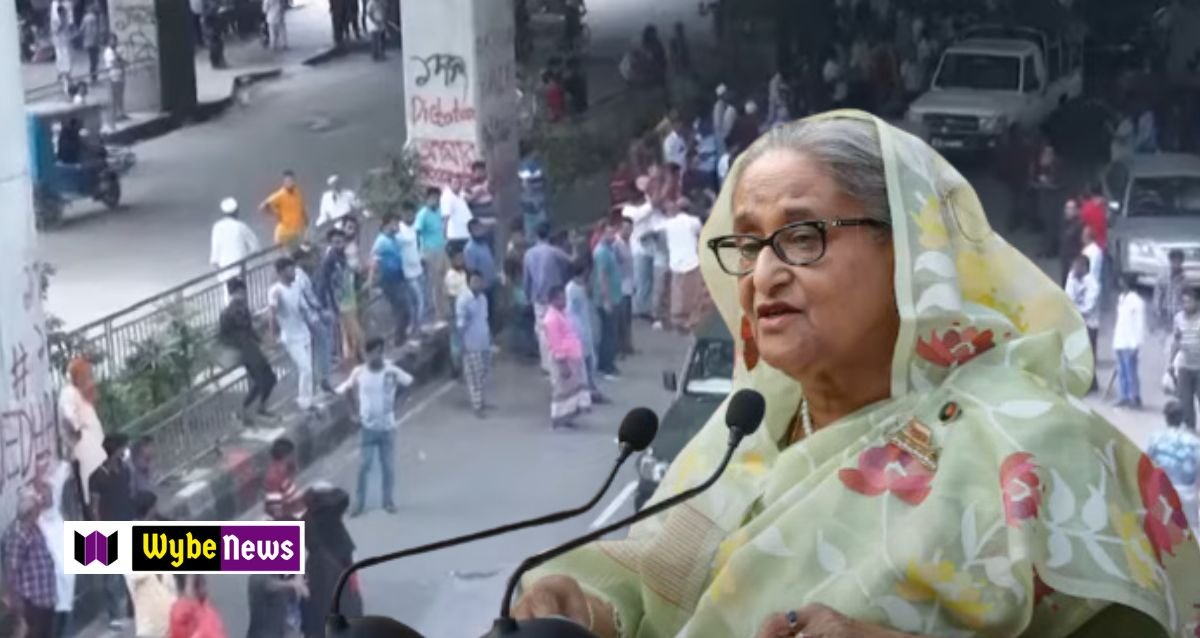Sheikh Hasina Resigns and Flees Bangladesh Amid Violent Protests: A Turbulent Turn of Events

The Unfolding Crisis
The resignation of Prime Minister Sheikh Hasina marks a significant, turbulent turn in Bangladesh’s socio-political landscape. The origins of this unfolding crisis can be traced back to growing discontent within various segments of Bangladeshi society, notably among the youth and the middle class. At the heart of this discontent was the issue of preferential job quotas that heavily favored certain groups, leaving vast swathes of the population feeling marginalized and disenfranchised.
What began as isolated protests against these job quotas quickly gained momentum, resonating with a broader populace dissatisfied with various aspects of the Hasina administration. Initial demonstrations, primarily spearheaded by students and young professionals, soon expanded to include diverse societal factions, from labor unions to opposition political parties. The situation rapidly escalated as demands grew more radical, transitioning from calls to reform the job quota system to a sweeping movement demanding the resignation of Sheikh Hasina herself.
The forceful crackdown on these initial protests only fueled further outrage. According to reports from human rights organizations and local news outlets, the ensuing violent confrontations resulted in numerous casualties. Statistics indicate that the protests resulted in at least 15 fatalities and over 200 injuries in the span of just a few weeks. The protests evolved into full-scale riots, leading to extensive property damage and paralyzing key urban centers.
Amidst increasing violence and international scrutiny, the situation became untenable for the Hasina government. The growing civil unrest and the stark division between the governing body and the people it served set the stage for the dramatic resignation and self-imposed exile of Sheikh Hasina. This series of events underscores the volatile nature of Bangladeshi politics and highlights the significant socio-political challenges the nation faces.
The Dramatic Escape: Events of the Day
The day Sheikh Hasina fled Dhaka was marked by unprecedented turmoil and swift, decisive actions. The violent protests escalated to a fever pitch as the crowd breached the fortified gates of her official residence, marking a critical turning point in a day already fraught with tension. The breach left no sanctuary for the Prime Minister, compelling her to initiate a hastily prepared evacuation plan.
As the situation inside the residence grew increasingly perilous, she was ushered to a waiting helicopter, which wove its way through the chaos that had engulfed Dhaka. This critical moment underscored the volatile nature of the protests and the immediate threat to her safety.
In a matter of hours, Sheikh Hasina’s helicopter landed at the Hindon Airbase near Ghaziabad, India. Here, India’s National Security Advisor, Ajit Doval, stood ready to receive her. The coordination between the two nations at this juncture highlighted the intricate logistical planning and swift diplomatic interventions that were executed to ensure her safe passage.
On arrival, Hasina was immediately escorted to a secured location under Doval’s supervision. This interaction marked the beginning of India’s immediate logistical and diplomatic efforts, offering her temporary asylum amidst a backdrop of rising international scrutiny. The assurances of safety and support provided by the Indian government were pivotal, showcasing a well-coordinated response to a rapidly unfolding crisis.
The emergency measures taken by India did not only assure Hasina’s physical security but also extended to facilitating temporary living arrangements and strategic communications. This first day of her exile painted a vivid picture of the urgent and dramatic nature of her escape and the lengths to which the Indian government went to provide sanctuary.
Implications for Bangladesh: Interim Government and Military Intervention
The resignation and subsequent departure of Sheikh Hasina have set in motion a series of events that have deeply impacted the political landscape of Bangladesh. In the wake of her exit, Bangladesh’s army chief, General Waker-uz-Zaman, declared the formation of an interim government, marking a significant shift in the governance structure of the nation.
The establishment of the interim government, overseen by General Waker-uz-Zaman, instantly raised questions about the country’s political stability. Historically, military interventions in governance often evoke concerns of authoritarianism and a drift from democratic norms. The role of the military in this scenario will be critical in striking a delicate balance between maintaining law and order and ensuring a swift return to civilian rule.
One of the primary challenges faced by the interim government will be the management of public sentiment. The protests leading to Sheikh Hasina’s resignation have already demonstrated a highly charged and polarized populace. The interim government’s ability to navigate this charged atmosphere, mitigate violence, and address the underlying grievances of the protestors will be crucial in maintaining stability.
Internationally, the developments in Bangladesh are being closely monitored. The global community is wary of the implications of military governance, with concerns about human rights and the democratic process at the forefront. Consequently, the interim government will be under significant pressure to demonstrate a commitment to democratic principles and transparency to garner international support and legitimacy.
Public expectations from the interim government are high. There is an urgent need to restore order, initiate meaningful dialogue among political factions, and prepare for fair and free elections. The interim administration must also focus on rebuilding public trust and ensuring that the transition process is inclusive and represents a broad range of political and civil interests. The path towards a stable and democratic Bangladesh hinges upon the interim government’s ability to effectively manage these myriad challenges and steer the nation towards a constructive future.
International Reactions and Future Prospects
In the wake of Sheikh Hasina’s resignation and departure from Bangladesh, the international community has been observing the situation with heightened interest. The United States, taking a leading role, has emphasized the importance of establishing a democratic and inclusive interim government in Bangladesh. This stance aligns with its broader geopolitical strategy of promoting democratic values in South Asia. The U.S. State Department has urged all parties in Bangladesh to engage in peaceful dialogue and seek a swift return to constitutional order.
Meanwhile, the World Bank has voiced substantial concerns regarding the continuity of its ongoing projects in Bangladesh. Given the nation’s role in various regional infrastructure initiatives, the political instability raises questions about the future of these vital projects. The World Bank is cautiously monitoring the developments and is in dialogue with interim leadership to ensure that essential programs do not suffer prolonged disruptions.
On the diplomatic front, Sheikh Hasina’s pursuit of asylum in the United Kingdom has added another layer of complexity to the situation. The UK government, while following standard asylum protocols, is also weighing the broader implications for its foreign relations in South Asia. India’s involvement is particularly noteworthy. The Indian government has reportedly agreed to facilitate Hasina’s temporary stay, contingent on specific conditions aimed at ensuring stability in the region. This move highlights India’s strategic interest in maintaining a balanced power dynamic along its borders.
Forecasting the political future, analysts are divided. On one hand, the departure of a long-standing political figure like Sheikh Hasina opens the door for potential reforms and a new political landscape in Bangladesh. On the other hand, the immediate impact may involve a period of uncertainty and potential power struggles. The upcoming weeks and months will be crucial in determining how these events reshape Bangladesh’s political and social framework, with significant long-term ramifications for regional geopolitics. As the international community continues to respond and adapt to these developments, the region’s stability hangs in a delicate balance.






